The teachers at the mdw’s newly founded Department of Early Music, all of them experienced professionals with many years’ worth of expertise in their field, provided mdw Magazine with diverse insights into their relationships with early music.
Over the decades since the 1950s, historically informed performance and the exploration of early repertoire based on solid scholarship have gradually given rise to what is now an established component of our cultural landscape with a constant presence on concert stages and at festivals. Be it as part of early music subscription series at one of Vienna’s major venues or at long-running festivals in Vienna, Innsbruck, Melk, and numerous other locations: music from the Middle Ages, the Renaissance, and the baroque era is being performed all over the place in new and surprisingly lively ways.
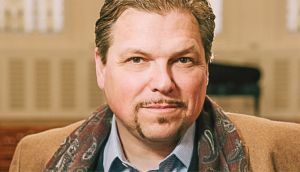
The world-renowned tenor Michael Schade (whose many honours include the Austrian title of Kammersänger) has this to say: “To an extreme degree, so-called early music lives in the present—or, more to the point: in the instant, since the instruments back then sounded quite a bit more brittle than today’s ‘modern’ ones,” he explains. “Solid training in early music in crucial—and dealing with historical performance practice from the standpoints of style and technique is the key to beautiful singing to begin with.”
It’s via different paths that the various teachers found their way into the early music field. While Schade’s preferences in terms of sound were shaped by his dad’s record collection and his experiences singing as a choirboy, violinist Hiro Kurosaki only got into early music later in life following his modern training under Franz Samohyl. “It was when I turned to historically informed performance myself that I came to fully realise the advantages of this violin technique that’s come down to us from the 18th century,” explains Kurosaki, going on to mention examples like “historical fingerings, portamenti, good articulation”, and “a full but never forced tone.” Augusta Campagne, for her part, reveals that she “was never particularly interested in typical piano repertoire”. Instead, she discovered the harpsichord and fell in love with it, took lessons, and ended up enrolling at the Schola Cantorum Basiliensis in Basel. Johannes Weiss, on the other hand, had been leading a very busy life as a choir director and all-around musician when “suddenly, multiple CDs crashed into my jack-of-all-trades existence…. They permanently transformed my listening habits, my understanding of music, and my very self,” goes this harpsichordist’s, singer’s and gambist’s emphatically told tale.
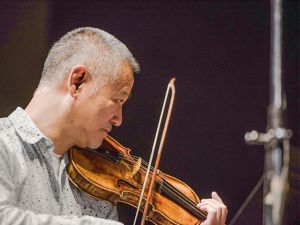
The role models and important colleagues mentioned by the department’s teachers include figures such as Eugen Jochum, Frans Brüggen, Trevor Pinnock, Christopher Hogwood, John Eliot Gardiner, Neville Marriner, Gustav Leonhardt, René Clemencic, Bernhard Klebel, Paul McCreesh, Lars Ulrik Mortensen, John Holloway, Jaap ter Linden, and Gérard Lesne.
But one person was and still is a significant guiding figure to them all: Nikolaus Harnoncourt. For harpsichordist Erich Traxler, “Harnoncourt and the early music pioneers of his own and preceding generations revolutionised the aesthetic approach to entire eras of music.”
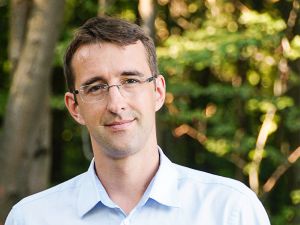
As to the specific values he’ll bring to bear in teaching at the new department, Traxler has a clear vision. He wants to “help young people find substantial and fruitful sources for their individual quests after the hitherto-unheard.” And with reference to Harnoncourt’s trailblazing book Musik als Klangrede (Music as Speech) and a multitude of musical dialects, all tied to “a virtually inexhaustible pool of sources”, he adds that “the great opportunity for young students lies in refining and honing their own expressivity by exploring this musical language’s subtle details and nuances.” Johannes Weiss waxes enthusiastic about the “unbelievable number of interesting and interested students”, and he’s thrilled by the mdw’s rich selection of instruments: “This is an institution full of fantastic harpsichords; with baroque violins, violas, and cellos; with chalumeaux, natural trumpets, baroque oboes, and historic flutes.” Augusta Campagne defines the kind of continuo playing that she practices and teaches as “guided improvisation that requires one to accumulate a great deal of knowledge about style, voice leading, and compositional techniques.” Her students, she says, should “learn to understand what the other musicians want and to realise this in their playing while simultaneously leading the players of the upper parts.” Flexibility is a key factor for Michael Schade, as well. To him, it’s important “how I adapt my voice to different repertoire—which is to say: How do I sing Mozart compared to Schubert, Bach, Telemann, Dowland, or Byrd? It’s extremely helpful to engage with and understand the different harmonic, poetic, and stylistic languages of the composers and their times.”
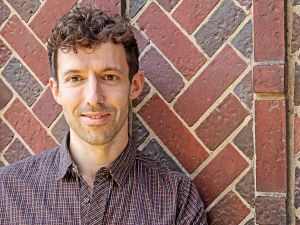
And the future of early music? Augusta Campagne notes that “it’s already gone mainstream to some extent, especially in Western Europe.” She views this development through a critical lens: “Unfortunately, this also means that such music frequently gets played in halls that are in no way suited to it. That then leads to other compromises, and ultimately, quite a bit ends up getting lost.” In Erich Traxler’s view, “the early music movement has itself now become an institution that’s attracting more and more criticism.” The reasons: “A certain standard repertoire—with a strong early 18th-century component—and established parameters for this repertoire in terms of things like instruments, instrumental forces, and ways of playing.” Michael Schade holds that the future of early music is already here: tradition-steeped orchestras such as the Vienna Philharmonic and others in Europe, the USA, and Japan “have long since changed and adapted their sound and their way of playing. And great singers looking to realise ambitious albums and projects are fond of choosing conductors and ensembles from the early music world. It’s often the agile and crisp quality as well as the especially delicate intimacy of which period formations are capable that are especially attractive to us. And passing precisely these things on to my students is my personal goal.”
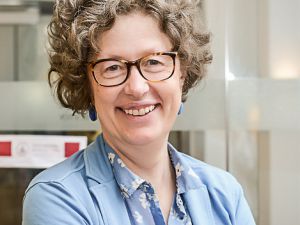
The universally high motivation among the new department’s teachers is expressed nicely by Erich Traxler: “My vision is for the mdw’s Department of Early Music to send distinctive musicians out into our concert life who’ve internalised the aesthetics of past centuries at a uniformly high level while also acquiring expertise and deep-reaching experience in specialised areas. That will put them in a position to convey values and qualities to the audience that are substantial and lasting.” And Hiro Kurosaki sums things up on a personal note: “the founding of this Department brings the long history of the mdw, with over a century of involvement in early music in Vienna, full circle with my own path in life.”

